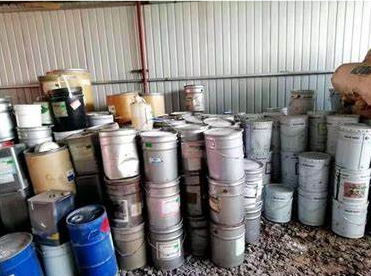Analysis of current situation and prospect of new chemical materials industry in 2023
4. The development advantages and strategies of large international chemical new materials companies are the key
In recent years, the development of the global chemical new materials industry as a whole has entered a stage of high-tech leadership, rapid product iteration, and continuous expansion of industrial scale and demand. From a global point of view, the United States, Japan, Europe and other countries and regions are leading the development of new materials. International companies such as Dow Chemical, ExxonMobil, BASF and Mitsubishi Chemical have the advantage in terms of core technology and market share. As one of China's emerging strategic industries, new materials still have a large room for improvement under the requirements of high-quality development.

The reason why Dow Chemical, ExxonMobil, BASF and other international large companies can become the leader of the global chemical new materials industry is that the key lies in the surprising new materials business strategy, which includes the following aspects.
First, the raw material cost is relatively low and the whole life cycle evaluation is carried out. Dow Chemical and ExxonMobil give full play to the advantages of ethane raw material resources in North America to reduce the production cost of basic chemical raw materials such as ethylene and downstream new materials; At the same time, the whole life cycle of new materials such as raw material source, synthesis process, processing design, use process, waste recovery, recycling is evaluated, and green and low-carbon technologies are integrated into it to provide customers with leading sustainable development solutions for new chemical materials.
The second is to maintain technology leadership and full chain service strategy. Dow Chemical, ExxonMobil, BASF, Mitsubishi Chemical can continue to strengthen research and development innovation in their own areas of advantage, form representative technologies with international competitiveness, and maintain a leading position in the world. Through the establishment of the polyolefin business packaging master network, polyurethane business comfort science and technology laboratory and automotive materials business platform, Dow Chemical works closely with scientists, brands, processors and packaging designers around the world to link the entire packaging value chain, providing customers with a total solution from product production, processing and application to technical services.
The third is to pay attention to the full series of products, branding. Major companies generally attach importance to the development of new materials with different properties and uses, form a rich portfolio of differentiated products, build product brands, and constantly expand market share. Basf brings together more than 400 of its polyamide products (nylon) in Ultramid? Under the brand, we can provide users with a full range of nylon resin and its modified products, and become the main supplier of high-end nylon products in the world. The company is dedicated to tailor-made system solutions or functional materials for users and brings more than 300 new products to market each year.

Fourth, the industrial chain collaborative innovation strategy. Major international companies attach great importance to the collaborative innovation of the whole industry chain from raw material production, material synthesis to downstream processing applications. Exxonmobil has increased investment in upstream oil and gas extraction, downstream refining and chemical integration research and development, using downstream research and development technology and products to feed upstream, providing new materials for upstream in hydrogen fuel cells, lithium batteries and carbon capture, and promoting upstream carbon reduction. At the same time, a goal-oriented classification research and development system has been established to expand new material varieties through technology research and development, and expand the market through application development and technical services.
Fifth, the strategy of integration, collaboration and digital transformation. Through the high integration of raw materials, plants, energy and materials, logistics and on-site infrastructure, BASF achieves self-sufficiency in raw materials for the production of new chemical materials, energy saving and consumption reduction, reducing emissions and logistics costs. Facing the forefront of new materials industry disciplines, Dow Chemical focuses on the transformation to digital intelligence, and applies machine learning, material genetic engineering, artificial intelligence and other applications to the biological development and production of new materials to improve research and development efficiency.
Sixth, open cooperation and innovative business model strategy. The company attaches great importance to the strategic cooperation with universities, professional research institutions, peer companies and industry giants, the establishment of interdisciplinary research and development system, especially in the basic research of new materials to strengthen cooperation with universities. Exxonmobil, for example, has test sites and laboratories in several countries around the world and works with more than 80 universities to commercialize scientific research. At the same time, all companies attach great importance to business model innovation, strengthen the venture capital system and technology incubation. For example, two subsidiaries, BASF New Industries and BASF Ventures, specialize in venture capital and technology incubation, supporting start-ups and developing attractive markets and new business models for BASF.
- ABB
- General Electric
- EMERSON
- Honeywell
- HIMA
- ALSTOM
- Rolls-Royce
- MOTOROLA
- Rockwell
- Siemens
- Woodward
- YOKOGAWA
- FOXBORO
- KOLLMORGEN
- MOOG
- KB
- YAMAHA
- BENDER
- TEKTRONIX
- Westinghouse
- AMAT
- AB
- XYCOM
- Yaskawa
- B&R
- Schneider
- Kongsberg
- NI
- WATLOW
- ProSoft
- SEW
- ADVANCED
- Reliance
- TRICONEX
- METSO
- MAN
- Advantest
- STUDER
- KONGSBERG
- DANAHER MOTION
- Bently
- Galil
- EATON
- MOLEX
- DEIF
- B&W
- ZYGO
- Aerotech
- DANFOSS
- Beijer
- Moxa
- Rexroth
- Johnson
- WAGO
- TOSHIBA
- BMCM
- SMC
- HITACHI
- HIRSCHMANN
- Application field
- XP POWER
- CTI
- TRICON
- STOBER
- Thinklogical
- Horner Automation
- Meggitt
- Fanuc
- Baldor
- SHINKAWA
- Other Brands




































































































































